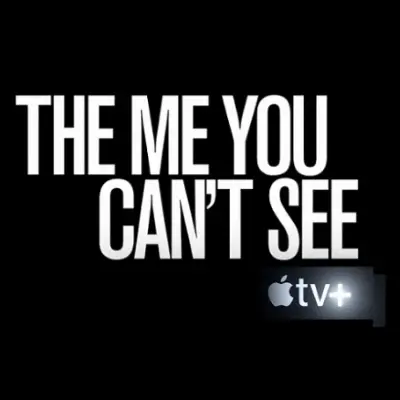Oprah Winfrey and Prince Harry's The Me You Can't See raises of the question of whether celebrities are actually helping by sharing their mental health struggles
-

"Interspersing Harry’s interview with Winfrey are accounts from other people of their struggles with depression, anxiety, OCD and other mental health problems," says Lucy Mangan of Oprah and Harry's five-part Apple TV+ docuseries. "But they don’t get Oprah. Only Harry gets Oprah. Celebrity chef Rashad Armstead, champion flyweight boxer Ginny Fuchs, even Lady Gaga (though she had her turn last year when she kicked off Oprah’s 2020 Vision tour) tell their stories to some nobody and the camera. The two-tier system makes the creeping distrust of the enterprise harder to ignore. There are, almost certainly, no bad actors in this episode or this venture. Lady Gaga probably speaks for them all when she says talking about what she has endured is her way of recognizing her privilege and 'giving back.' And yet. And yet. Every contribution helps shape a debate – to challenge its terms or to legitimize them. And the current terms of the public mental health debate are parlous. However real and affecting their experiences and difficulties are (and all those in Say It Out Loud are genuine, passionately articulated and frequently deeply moving), celebrity offerings valorize simply “telling your story”, not judging yourself and others, refusing to accept stigma and so on. Which is all well and good and necessary but does absolutely nothing to address how ordinary people are supposed to achieve this when the waiting lists for the services they need to access stretch to infinity, and the funding for them is cut to the bone. Nor does it acknowledge any deeper, more intractable forms of mental illness that need even more urgent attention, and to which all ancient stigma still attaches."
ALSO:
- It’s easy to be cynical about The Me You Can’t See, despite its professional polish, undeniable poignancy and thoughtful inclusivity: "Full of headline-worthy revelations, the series often functions as a sort of brand extension: of the explosive Oprah With Meghan and Harry special earlier this year, of Harry (and William’s) years-long campaigns for mental health, of Winfrey’s influential daytime talk show, whose reputation in recent years has been somewhat tarnished for its role in promoting junk-science boosters like Dr. Oz and Dr. Phil," says Inkoo Kang. "The most immediate question that a glossy doc like this (especially siloed on a niche streaming service seemingly targeted at a high-income viewership) prompts is what kind of impact it can really have, when access to social and psychological services in the U.S. are already so stratified by class. What’s the use of a docuseries that aims itself at the kind of people who are already the best positioned to get the kind of help it endorses? And yet it can’t be denied that Prince Harry is a surprisingly apt champion for seeking care."
- Outside of Prince Harry segments, The Me You Can't See is frustratingly unambitious: "Harry’s honesty about losing his mother is powerful," says Adam White, adding: "There are many stories equally as compelling here, if far less likely to create tabloid noise. Where everything falters, though, is in the show’s limited scope. The Me You Can’t See is undeniably well-intentioned, but it doesn’t push the conversation about mental health any further than it feels the need to. Winfrey’s ethos is rooted in a 'pull oneself up by the bootstraps' lesson of self-sufficiency, where merely talking about pain and trauma is the be-all and end-all. The economic causes of mental illness, and the chronic underfunding and scarcity of mental health support, are never mentioned."
- The Me You Can't See's message is laudable, even if it's not compelling television: "If The Me You Can't See helps one person, this globe-spanning exercise was surely worth it," says Brian Lowry. "But strictly as a TV show, you're not missing much if you don't see it."
TOPICS: The Me You Can't See, Apple TV+, Oprah Winfrey, Prince Harry, Documentaries
More The Me You Can't See on Primetimer:- Prince Harry is contradicting himself with his mental health comments on The Me You Can’t See and Oprah with Meghan and Harry
- Prince Harry has easily slipped into an American version of celebrity with his recent TV appearances
- Oprah Winfrey and Prince Harry set a The Me You Can’t See town hall follow-up on Apple TV+
- Prince Harry accuses the monarchy of trying to smear Meghan Markle before their CBS Oprah Winfrey special
